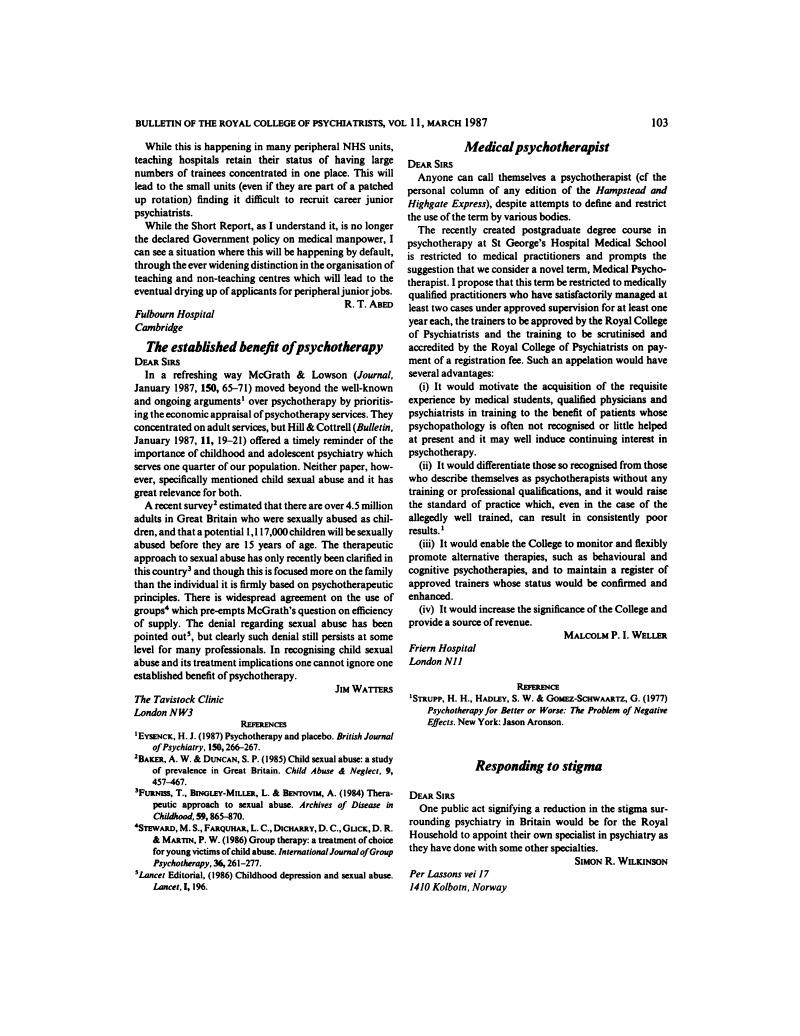No CrossRef data available.
Article contents
The established benefit of psychotherapy
Published online by Cambridge University Press: 02 January 2018
Abstract
An abstract is not available for this content so a preview has been provided. As you have access to this content, a full PDF is available via the ‘Save PDF’ action button.

- Type
- Correspondence
- Information
- Creative Commons
- This is an Open Access article, distributed under the terms of the Creative Commons Attribution (CC-BY) license (http://creativecommons.org/licenses/by/4.0/), which permits unrestricted re-use, distribution, and reproduction in any medium, provided the original work is properly cited.
- Copyright
- Copyright © Royal College of Psychiatrists, 1987
References
1.
Eysenck, H. J. (1987) Psychotherapy and placebo. British Journal of Psychiatry, 150, 266–267.Google Scholar
2.
Baker, A. W. & Duncan, S. P. (1985) Child sexual abuse: a study of prevalence in Great Britain. Child Abuse & Neglect, 9, 457–467.Google Scholar
3.
Furniss, T., Bingley-Miller, L. & Bentovim, A. (1984) Therapeutic approach to sexual abuse. Archives of Disease in Childhood, 59, 865–870.CrossRefGoogle ScholarPubMed
4.
Steward, M. S., Farquhar, L. C., Dicharry, D. C., Glick, D. R. & Martin, P. W. (1986) Group therapy: a treatment of choice for young victims of child abuse. International Journal of Group Psychotherapy, 36, 261–277.Google Scholar



eLetters
No eLetters have been published for this article.